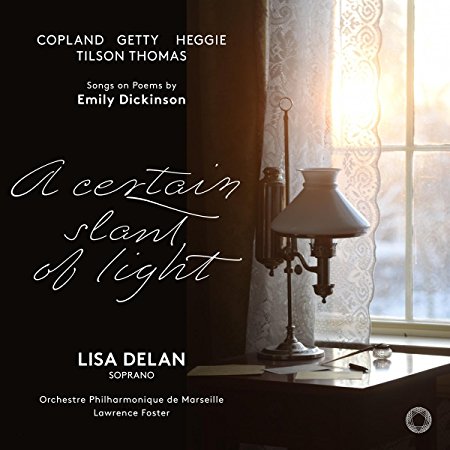
Review
Jeff Kallis,
It might have delighted Emily Dickinson to discover that her personalized poetry, crafted in the middle of Massachusetts in the mid-19th century, has summoned a quartet of 20th and 21st-century gentlemen callers, each presenting himself as a competent, compositional suitor.
On a new Pentatone recording, A Certain Slant of Light, Aaron Copland, Gordon Getty, Jake Heggie, and Michael Tilson Thomas are welcomed by the clear, ingenuous vocalizations of soprano Lisa Delan, squired by conductor Lawrence Foster and the Orchestre Philharmonique de Marseille. George Boziwick, former chief of the music division at the New York Library for the Performing Arts, provides valuable liner-note insights into the composers and their poetic muse.
The results here are diverse but satisfyingly uniform in delight and charm, appropriate to the source of the texts. Copland’s Eight Poems of Emily Dickinson, the orchestral set which opens this album, bears an unaffected brightness, rather in the spirit of the European Romantic composers of the poet’s time. Foster paces his company artfully in following Delan, from the radiance of “Nature, the gentlest mother” through the forthrightness of “There came a wind like a bugle,” the wise reflection of “The world feels dusty,” and the hilarity of “Going to Heaven!”
Delan’s engaging theatricality and the evergreen freshness of Dickinson’s observations are further evinced in Heggie’s setting of “I’m Nobody! Who are you?” This composer’s lovely way with long vocal lines is showcased in “Silence,” and he gently rocks “That I did always love,” the sweet and soft qualities of Delan’s instrument allowing words and melody to breathe affectingly.
Getty’s set seems aptly to dress the elegance of Dickinson’s expression in more formal Victorian garb, audible in the arching harmonies of “Safe in Their Alabaster Chambers” and the bell-borne portent of “There’s a Certain Slant of Light.” Delan’s familiarity with this composer’s operatic work is in evidence here, although his setting of “Because I Could Not Stop for Death,” derived from the same text as Copland’s “The Chariot,” heard earlier on the disc, takes a more whimsical, Mahlerian approach to the fatal coach ride.
Tilson Thomas makes arguably best use of the teamed colors of the orchestra, including the percussion propelling “Down Time’s Quaint Stream.” Horns and strings sing alongside Delan’s vibrant reading of “The Bible.” For “The Earth Has Many Keys,” above Tilson Thomas’s lurking postmodern theme, Delan emits a vivifying radiance. As with Dickinson herself, Delan winningly transcends the medium she’s recorded on.
Jeff Kallis
San Francisco Classical Voice

Critic's Choice!
Joshua Rosenblum,
Opera News
Soprano Lisa Delan, a tireless and exemplary advocate of American song, has united four composers here through a poet. Orchestrated song cycles by Aaron Copland, Jake Heggie, Gordon Getty, and Michael Tilson Thomas are settings of Emily Dickinson poems. Delan clearly believes deeply in both the poetry and the music. The album is superbly recorded and engineered; we hear all the orchestral detail, but the voice is never swamped. This is also a tribute to Delan’s naturally radiant timbre and fiercely communicative delivery.
Aaron Copland’s Eight Poems of Emily Dickinson are a subset of the twelve he composed as a cycle for piano and voice; these are the ones he considered most suitable for orchestral adaptation. “Nature, the gentlest mother” opens the cycle with the composer’s familiar bright, spacious harmonies, leading to an unexpected clamor on the phrase “The most unworthy flower.” “There came a wind like a bugle” is more harmonically dense and strikingly illustrative. “Heart, we will forget him” makes a big impact, capturing well the lingering effects of heartbreak. The song benefits from the surging orchestration and Delan’s soulful delivery. Copland’s setting of “Going to Heaven” is a good musical rendering of Dickinson’s intellectual excitement as she deconstructs the concept; the song also delivers the emotional punch of the last four lines, when the poem moves from the speculative to the personal, referencing the death of two dear ones.
Heggie’s cycle includes “I’m Nobody,” which is fun and imaginative (and winningly enacted by Delan), but the heavy orchestration is at odds with Heggie’s seemingly playful intent. “Fame” begins and ends arrestingly with two slashing D-major chords and features tremolo strings depicting the metaphorical buzzing bee, plus a vocal yelp before the line “it has a sting.” “That I did always love,” which Heggie says examines the commonality of the human spirit, is quiet, thoughtful and passionate, while “Goodnight” is both playful and poignant, with a gently rocking 6/8 rhythm and occasional unaccompanied phrases.
Delan previously recorded Getty’s cycle The White Election, which consists of thirty-one Dickinson settings. The set featured here, Four Dickinson Songs, consists of songs that were not included in The White Election but are among his best. “Safe in Their Alabaster Chambers” has reverent, cinematic grandeur and superb coloristic contrast. “A Bird Came Down the Walk” makes inventive use of fragmented solo harpsichord in its first two stanzas and a romantically soaring vocal line for the rest. “There’s a certain Slant of Light,” the album’s title track, features clangorous, dissonant chimes representing the “oppress[ive] heft of cathedral tunes.” The famous “Because I could not stop for Death,” which opens with a driving duplet figure on the xylophone, is swirling and ghoulish, with a touch of macabre humor. (There’s another setting of the same poem in the Copland set, but Getty’s is better.)
Tilson Thomas’s set of five opens with “The Bible,” which both evokes and parodies the sternness of the Scriptures via “a pedantic Sunday School teacher,” as Tilson Thomas puts it. (Delan’s characterization has the right touch of exaggeration and humor.) “Fame” is a fickle food” lays down a finger-snapping samba-like groove, and Delan makes a delicious meal of it. Tilson Thomas provides an intriguing, unearthly soundscape for “The earth has many keys,” and the last song, “Take All Away From Me,” has an epic conclusiveness that makes a satisfying ending to this grandly varied collection. The Orchestre Philharmonique de Marseille sounds magnificent under Lawrence Foster; throughout, it’s Delan’s essential partner.
Joshua Rosenblum
Opera News

New Review
David DeBoor Canfield,
Fanfare
Without having done any research to back up my impression, I will hazard a guess that Emily Dickinson has had her poetry set by more composers than that of any other American poet. (Walt Whitman would be a possible contender for that honor as well.) This is likely due to the “innate connection to music” that soprano Lisa Delan and many others have perceived in her work.
Indeed, Dickinson studied music in her youth. Delan developed a love for Dickinson’s work when she was presented with an anthology by her uncle when she was only 11, and began setting some of the poems herself to simple tunes that she would accompany on the guitar. Delan’s present recital of song settings of Dickinson’s poetry combines the work of four important American composers. Interestingly, all four of them have changed Dickinson’s words here and there from her original texts, and I cannot gainsay any of their emendations.
The recital opens with Copland’s Eight Poems of Emily Dickinson, far and away the best-known cycle on this disc. The work was originally written with piano accompaniment as Twelve Poems of Emily Dickinson, and many Fanfare readers of sufficient age will recall the first recording of the work, with the composer accompanying soprano Martha Lipton. Beginning in 1958, but not completing it until 1970, Copland undertook the orchestration of eight of the songs, and this version has been previously recorded numerous times by sopranos such as Marni Nixon, Barbara Hendricks, Helene Schneiderman, and others. I’m pretty sure that I have encountered Lisa Delan’s artistry prior to this, but my fading memory does not allow me to remember when and where. Regardless, Delan possesses the rich and lovely soprano voice needed to bring these lyrical songs to life, and she does so with intelligence and grace. She has an uncanny ability to make high sustained notes float effortlessly in the air, and in the more dramatic songs, such as “There came a Wind like a Bugle,” she projects a vivid sense of urgency. In short, her rendition of these songs ranks with the best I’ve heard.
The other three cycles may be first recordings, although the notes do not specifically cite this, mentioning only that Getty’s and Heggie’s Songs were orchestrated for this recording. I trust that I am not assuming too much to say that these are being presented on disc for the first time in their orchestral garb. Jake Heggie has become over the past decade or so one of the most-performed living American operatic composers; indeed, two of his operas (Dead Man Walking and It’s a Wonderful Life) have been presented here in Bloomington in the recent past. It is therefore no surprise that his orchestral songs are rewarding both for singer and listener.
The original piano-accompanied versions of these songs were commissioned by Welz Kaufman and the Ravinia Festival for Kiri Te Kanawa’s 70th birthday in 2014. As is Heggie’s wont, the songs feature gorgeous melodic lines accompanied by exquisite harmonies. His aim was to select poems by Dickinson that convey the “deep and sometimes painful need to connect, especially as time is flying by.” I like very much Delan’s spirited performance of these songs, including an exaggerated breath in the second of the set, “I’m nobody! Who are you?” or the downward swoop after the exclamation, “Ah” in “Fame.” The beauty of the fourth song in the set, “That I did always love,” suggests Heggie as a worthy successor to Copland himself.
Gordon Getty may have set more poems of Dickinson than anyone else, given that his magnum opus The White Election includes 31 of them. This smaller cycle, Four Dickinson Poems, sets four more Dickinson poems. Getty’s settings from the outset reflect a very individual compositional voice. His style evokes wonder and mystery through the use of a very interesting harmonic palette, and seems to complement perfectly the similar qualities found in the poems of this American master. His use of the tritone and other piquant dissonances in “There’s a certain Slant of light” engender a spooky eeriness in the proceedings.
Heretofore, Michael Tilson Thomas has been exclusively a conductor in my mind, but his Poems of Emily Dickinson, of which we are presented with “selections” on the present CD, proves him to be a skilled composer, with rhythmic vibrancy combining with mild dissonances to form a musical tapestry with many colors. Often these settings also sparkle, as if one is watching a crystal rotating in a beam of sunlight refracting its light. This sampling of his music certainly makes me want to hear more, and I hope that an entire CD’s worth will eventually find its way from Fanfare Central to my desk.
Lisa Delan is a superb singer, whose beautiful vocal artistry sustains interest through an hour’s duration. She displays much imagination and even daring in her presentation of these songs. Lawrence Foster and the Marseille PO provide splendid orchestral support, and bring out the colors of the skillful orchestration of all four of these composers. This is a CD simply not to be missed by lovers of lyrical contemporary art songs and/or of exquisite vocal artistry.
See original review.
David DeBoor Canfield
FanFare

New Review
Colin Clarke,
Fanfare
Recorded in Pentatone’s trademark excellent, crystalline sound, this is one of the most intelligent releases to have come my way in some time. Four composers celebrate the greatness of the poetry of Emily Dickinson, each adding his own “slant of light” on Dickinson’s inimitable words. The performances are more than impeccable: technically flawless, but also much more.
The music of Jake Heggie seems to reveal greater depths on each acquaintance. The 2014 cycle Newer Every Day is subtitled “Songs for Kiri” (Te Kanawa, of course) and is headed by a Dickinson quote, “We turn not older with the years, but newer every day.” The waltz element of the second song, “I’m Nobody! Who are you?” is beautifully realized by the Marseille forces; in “Fame,” Heggie interchanges the last words of the last two lines of the poem for his own expressive purposes. The musical language here is pithy, direct; a softer side is heard in “That I did always love,” where the scoring is utterly beautiful. Sonic beauty resurfaces in “Goodnight,” the final song, along with a deliciously light dialog between voice and orchestral winds. For further listening, note that Heggie’s cycle From the Book of Nightmares is included on Delan’s multi-composer Pentatone disc The Hours Begin to Sing.
We enter a very different world for Getty’s Four Dickinson Songs (2008). These set four poems considered for the 31-poem cycle The White Election (1981) but which only find a flowering here. The orchestration of these songs is specifically for this recording. The impetus for this short cycle so many years after The White Election was a suggestion by Barbara Bonney. They are highly atmospheric, and the orchestration is masterly; the use of bells in “A Certain Slant of Light” is particularly effective.
There is a distinct sense of specifically American jubilation to Tilson Thomas’s setting of “Down Time’s Quaint Stream,” the first of this selection from his 2001–02 Poems of Emily Dickinson. The setting of “The Bible” confirms the rhythmic excellence of the Marseille orchestra along with Tilson Thomas’s splendid ear for magical sonority, nowhere better experienced than in the strange, otherworldly processional that is “The Earth has many keys.” The sheer level of drama of the final “Take all away from me” comes as a surprise, as does the journey in such a short space of time from that emotional white heat to the ethereal, silvery ending, which finds Delan’s control of her vocal instrument at its stunning peak. As explained below, Michael Tilson Thomas conducted the premiere of the Copland songs in 1970, and thus his work brings the disc full circle.
In each instance, Lisa Delan seems in perfect attunement to the respective composer. Her ability to color a line, to shade it exquisitely and always appositely, is highly impressive. This is a stimulating release, as satisfying intellectually as it is for the senses.
Colin Clarke
FanFare

New Review
Henry Fogel,
Fanfare
In Fanfare 36:6, at the conclusion of a very positive review of a Lisa Delan disc, Walter Simmons concluded with this: “Hearing her handle this program with such aplomb, I long to hear her bring to life some of the other neglected gems of the American art-song repertoire.” I encourage my esteemed colleague to order a copy of this immediately.
Lisa Delan is an American soprano who has specialized, at least on disc, in American repertoire. She chooses her songs well, and invests them with meaning as well as strong vocalism, and the results have always been successful. This may be one of her finest recordings to date. “There’s a certain slant of light” is a poem of Emily Dickinson, set to music by Gordon Getty, and it gives this disc its title. The Jake Heggie and Gordon Getty songs have been orchestrated by the composers specifically for this recording. Aaron Copland originally wrote a cycle of twelve Dickinson poems for voice and piano, and he then began to selectively orchestrate eight of them, a process concluded in 1970. Michael Tilson Thomas originally composed his for voice and orchestra.
Delan possess a lyric soprano voice that is bright without turning hard; there is always an ample supply of color to the sound. In addition, she is an intelligent musician who always brings an interpretive point of view to what she sings. That keen dramatic instinct, combined with excellent diction, adds to the impact this disc makes on the listener. The soprano wrote a brief note for the booklet about her affection for Dickinson’s poetry. That is followed by extensive and very informative notes by George Boziwick. Pentatone also includes texts, a nice touch given the clarity of the singer’s diction.
Copland’s songs have attained a considerable reputation in both the original piano version and these orchestrations, and there is good reason for that. Particularly effective is the final song, “The Chariot.” The poignant but still emotional mood is set by the opening lines: “Because I would not stop for Death/He kindly stopped for me.” Delan employs a variety of vocal colors throughout the song to convey its reflective yet urgent mood. The final lines describing this chariot ride are: “I first surmised the horses’ heads/Were toward eternity.” Delan holds the final note, on the final syllable of “eternity,” with a beautiful hushed piano.
Heggie’s songs were originally composed for the Ravinia Festival outside of Chicago, commissioned to celebrate the 70th birthday of Kiri Te Kanawa in 2014. Heggie is one of today’s most important composers of vocal music, whether songs or operas, and this set is quite extraordinary in its depiction of the senses of consolation, love, and fear that are central to the poems he chose to set. “Silence is all we dread” and “That I did always love I bring thee Proof” are two of Dickinson’s most famous and powerful poems, and Heggie’s urgent settings amplify their words. In the final song in this cycle, “Goodnight,” Heggie (aided by Delan’s performance) finds an ideal balance between reflectiveness and urgency.
Fanfare readers may already know that I am a fan of the music of Gordon Getty. His extremely conservative style (though not without an occasional injection of modernism) is used at the service of a genuine melodic gift. This particular cycle of four of Dickinson’s poems was composed in 2008, some 27 years after his larger Dickinson cycle The White Election. It is interesting to compare Getty’s setting of “I could not stop for Death” with Heggie’s. Heggie seems to focus on the wandering mind of the subject riding in the chariot, where as Getty amplifies the relentless tread of the horses taking that journey to eternity.
Tilson Thomas’s setting of “Fame” brings out the irony of the poem (“Fame is a ficke food/Upon a shifting plate,/Whose table once a/Guest, but not/The second time, is set.”). The final song on the disc is Tilson Thomas’s setting of “Take All Away From Me,” a lyrical outpouring that celebrates the joy of ecstasy. Delan’s long floated high notes are quite extraordinary here.
In addition to Delan’s wonderful singing, credit must also be given to Lawrence Foster and his Marseille Philharmonic musicians, for whom this music must have been completely new. Foster has long been a conductor willing to explore unknown repertoire, and he and his orchestra support and amplify what Delan is doing. The recorded sound, heard in conventional stereo, is very well balanced. We always hear Delan clearly, but the orchestral detail is not slighted either. This is a very distinguished and worthy disc.
Henry Fogel
FanFare

New Review
When Music Gets Personal,
InfoDad
Although there are always personal elements in music-making – and in composing – there are some recordings that come across with a more strongly personal stamp than others. A clear example is a new PentaTone SACD with the title, “A Certain Slant of Light” – a phrase from a poem that begins, “There’s a certain slant of light,/ Winter afternoons,/ That oppresses, like the heft/ Of cathedral tunes.”
Eight Poems of Emily Dickinson (1948/1950) shows Aaron Copland in an interesting light. The settings are neither as accessible and tonal as his best-known works, nor as self-consciously modern as much of his less overtly popular music: they genuinely support Dickinson’s language without overwhelming or commenting on it, giving Delan – who is highly sensitive to textual nuance – plenty of chances to bring forth the poems’ emotional strength. Copland did not have access to definitive editions of Dickinson’s poems, but this matters little in the context of the care and sensitivity with which he set the words. That Dickinson’s work can be handled in multiple ways is immediately clear when the disc moves on from Copland to the five poems in Newer Every Day (2014) by Jake Heggie (born 1961). Heggie finds acerbity, if not quite bitterness, in Dickinson’s words, and is especially effective at underlining the thoughts and feelings behind I’m Nobody! Who Are You? and Fame (one of two different poems on the disc with that title). The selection of specific poems to set is one aspect of the strong sense of personalization here. Four Dickinson Songs (2008) by Gordon Getty (born 1933) is in some ways an extension of Getty’s The White Election of 1981, which contains 31 Dickinson poems.
The four here were orchestrated specifically for this recording, and three of the four are about death, including the famous Because I Could Not Stop for Death – which Copland also set, with slightly different words and in a version 50% longer than Getty’s. Getty engages directly with the poems here and does not hesitate to bring out their darker elements: if Copland’s settings are presentations of the poems, Getty’s are interpretations of them. The final offerings here are five selections from Poems of Emily Dickinson (2001) by composer/conductor Michael Tilson Thomas (born 1944), and again the choices say a great deal about composer and poet alike. Thomas introduces every poem with a kind of scene-setting orchestral opening, ranging from little more than a flourish to a kind of miniature tone poem. The poems heard here are all short, with Thomas choosing to keep two of them brief in presentation while expanding the other three – in one case, The Bible, to almost five minutes. This recording is quite clearly intended for listeners interested in Dickinson, in modern American music, and in art songs in general – an admittedly rarefied group. But the material is so compelling, and at the same time so variegated, that anyone who knows Dickinson’s poetry (even a little bit of it) will have an enriching experience by listening to it in this fascinating context.
The InfoDad Team
InfoDad

New Review
Barry Bassis,
The Epoch Times
Emily Dickinson (1830–1886) may have lived in obscurity, but her poems have inspired a number of classical composers. “A Certain Slant of Light” (on Pentatone) is soprano Lisa Delan’s recording of Emily Dickinson’s poems as set by four composers, with the Orchestre Philharmonique de Marseille conducted by Lawrence Foster.
Aaron Copland (1900–1990) originally wrote a 12-song cycle of Dickinson’s poetry for a soprano accompanied by a pianist. (A recommended recording is the one by Phyllis Curtin with the composer on piano.)
Copland later orchestrated eight of these songs, and these are what Delan sings on the album. The songs sound even more beautiful with such a rich backing.
The last song in the cycle, “The Chariot” is actually the poem that first caught Copland’s interest, with its opening line: “Because I could not stop for Death, he kindly stopped for me.”
The mood changes from the lulling “Nature, the gentlest mother” to the lively “There came a wind like a bugle” and “Dear March, come in!” to the melancholy songs of death (“The world feels dusty” and “The Chariot”) and loss (“Heart, we will forget him”).
Jake Heggie (b. 1961) is a prolific composer of operas and songs. He composed the cycle “Newer Every Day” for Dame Kiri Te Kanawa, accompanied by a pianist, and orchestrated them for this recording. The title comes from the Dickinson poem “We turn not older with years, but newer every day.” Surprisingly, that’s not one of the poems in the cycle.
“Silence” has a sound similar to Gustav Mahler’s. “I’m Nobody! Who are you?” is as playful musically as are the lyrics. “Fame” has a repeated musical phrase that sounds as if it were taken from “The Bell Song” from Léo Delibes’s “Lakmé.” “That I did always love” is another work that suggests a romance in Dickinson’s life. “Goodnight” is rather upbeat, though the subject may be a farewell to life.
Gordon Getty (b. 1933) is also a prolific composer of songs and operas. He composed “The White Election” (a cycle setting 32 of Dickinson poems). Four other songs set to Dickinson poems are included here, orchestrated by Getty for this CD. He creates a cathedral-like sound for “There’s a Certain Slant of Light” and ends with the same poem as Copland’s “The Chariot,” using the original title, “Because I could not stop for Death.” Including both versions shows how two composers can create compelling settings for the same words.
The five songs by Michael Tilson Thomas (b. 1944) were written for and inspired by Reneé Fleming. He chose five short poems that highlight the poet’s more impudent and sardonic side. Thus, this is the happiest set, with the poet musing on the transient nature of fame, something she didn’t have to worry about. In another, she notes that “Beauty is nature’s fact.” In “Take all away from me” she asks to be left with Ecstasy.
In all these songs, Delan produces a gorgeous sound, clearly articulates the text, and conveys the shifting tones and styles of the composers. Foster’s conducting of the Marseille orchestra is also admirable.
The CD booklet contains a statement from the singer describing her fascination with Dickinson’s poetry, starting at age 11. There is a scholarly essay on the works, as well as photos of Delan with each of the three living composers. The poems are also included with indications of points at which the sung text diverges from the originals.
Lovers of art songs will enjoy this album.
Barry Bassis
The Epoch Times

New Review
Grego Applegate Edwards,
ClassicalModernMusic.com
To gather together multiple Contemporary Modern song cycles for soprano and orchestra based on the poetry of Emily Dickinson seemed like a good idea when I heard of it, and so I requested a copy. I have now spent some time absorbing it and shall report on this morning to you.
A certain slant of light: Songs on Poems by Emily Dickinson (Pentatone PTC 5186 654) is the full title. Soprano Lisa Delan holds forth dramatically with the Orchestra Philharmonique de Marseille under Lawrence Foster sounding nicely detailed and poised in a program of cycles by Aaron Copland, Jake Heggie, Gordon Getty, and Michael Tilson Thomas.
The stage is set historically and stylistically by Copland’s celebrated cycle “Eight Poems of Emily Dickinson” (1948/1950). It is music familiar to many, myself included, and it functions in some ways as a template for an evocatively descriptive and Expressionistic-Modern-quasi-Impressionistic pallet of colors to heighten the soprano’s textual through-composed presence throughout.
The sort of descriptive-Modern-Leider approach is continued and extended in the song cycles that follow. Jake Heggie’s “Newer Every Day” (2014), Gordon Getty’s “Four Dickinson Songs” (2008) and Michael Tilson Thomas’s “Poems of Emily Dickinson, selections” (2001) all offer some genuinely moving music and a sort of continuous Dickinsonion dramatic theatre of text and tone. Of all these Modern extensions on Dickinsonia the Tillson Thomas stands out as being especially interesting and original, yet in the end all of this music is worthwhile.
Delan and the Orchestre Philharmonic de Marseille are in top form. They exemplify how to approach this music, not so much as an extension of operatic gestures as a thoroughly liederian approach, dramatic yet introspectively expressive.
And so I do not hesitate to recommend this to you, for the performances, for the Copland and the Tilson Thomas especially but for the Heggie and Getty as well.
See original review.
Grego Applegate Edwards
ClassicalModernMusic.com
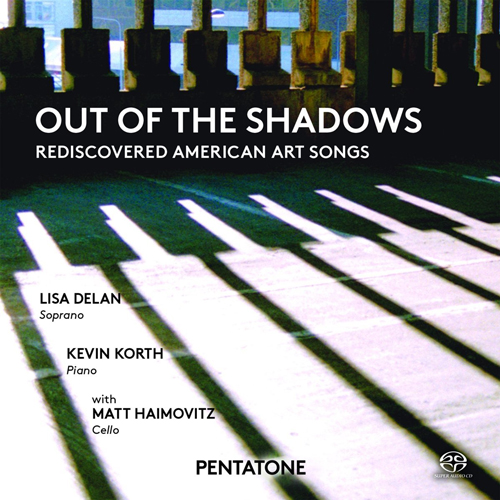
Review
Frederick Peters,
New Music Connoisseur
“…a tender and emotionally astute children’s story told in words and music…”
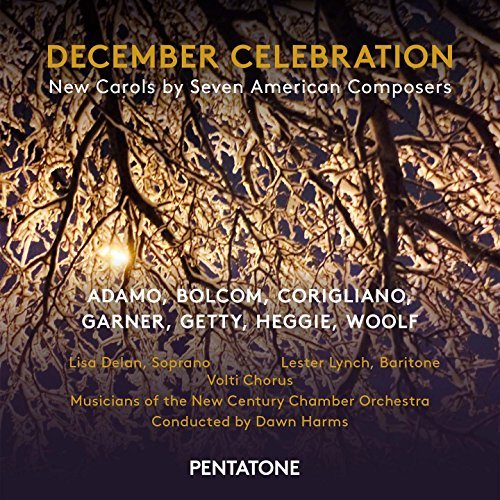
Review
Joshua Rosenbloom,
Opera News
Lisa Delan delivers a colorful, spirited rendering…. Delan floats beautifully through the serene, lovely last verse… compelling, well-characterized renditions.
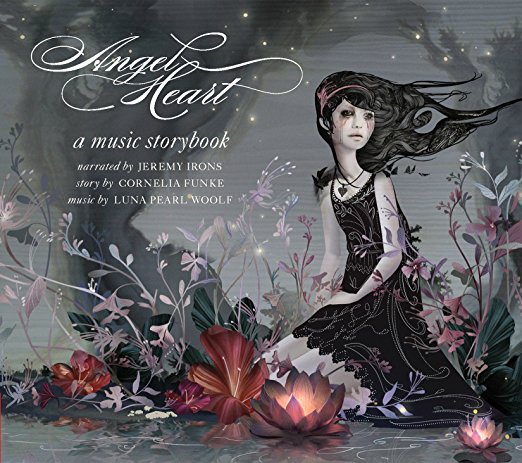
Review
Corinna da Fonseca-Wollheim,
New York Times
““…a tender and emotionally astute children’s story told in words and music…”
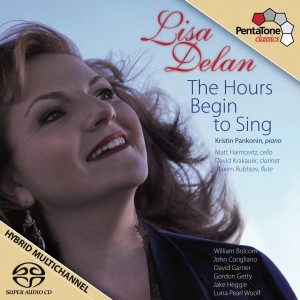
Review
Joanne Sydney Lessner,
Opera News
“Lisa Delan has established herself as a passionate advocate of contemporary art song, commissioning and singing the premieres of new works, as well as extending the life span of repertoire that might otherwise slip into oblivion…. she performs the songs with a sense of ownership and true connection. Delan’s voice is rich and smooth through all registers, and she wields it expressively…”

Review
Fanfare
“Phenomenal Woman gets a hybrid treatment of various styles that the poetry of Maya Angelou seems to inspire… mixing jazz, rock, blues, and more into seven individual songs with no related context. Lisa Delan eats them up and presents them in a fully persuasive manner. Those who love art songs will salivate over this one. The fine surround sound only seals the deal for me. Highly recommended!”

Review
Scherzo
“In this recording [Lisa Delan] achieves an excellence that only a cycle of such breadth can draw from her. The recitative, sometimes with a suspenseful accompaniment, is here the realm of the exquisite artistry of Lisa Delan. This disc is very beautiful, and although essentially tonal, it is a quintessential collection of the work of the poet and musician.”

Review
Fanfare
“…especially fine and worthy of attention is the vocal artistry of the American soprano Lisa Delan. Not only does she have an extremely attractive voice, displaying remarkable agility and musical precision, but she imbues her renditions with tremendous personality, which is utilized generously…”
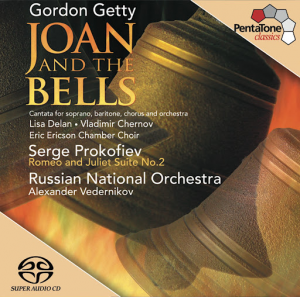
Review
San Francisco Classical Voice
“Delan… sang Joan handsomely, her soprano as true and steady as the character would want.”

Review
Fanfare
“Special praise goes to baritone Chernov, soprano Delan, and bass Hunka for their clear, committed singing…”
